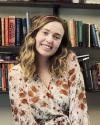Welcome to the Forest. This course focuses on composition viewed through the lens of literature. For this quarter, we will be embarking on a journey to understand what writing well and effectively looks like and this journey will be through the Enchanted Forest of the Fairy Tale. The fairy tale is a familiar genre through which we can explore the tools needed to write effectively. Much like how the hero of a fairy tale must collect magical items such as glass slippers, singing harps, or magic beans, so will we collect composition skills such as genre analysis, argument formation, and audience awareness. The first half of this quarter will focus on famous fairy tales and all of their versions while the second half will focus on contemporary fairy tales and films. The term will culminate in a creative research project in which you will research a certain fairy tale and then write your own. We will ask questions such as Why do we love fairy tales? How have fairy tales changed throughout the years? What makes the genre of fairy tale unique? What is the purpose of fairy tales? Should fairy tales be deemed as important as other literary genre? It might be a long quest through this Forest of Faerie but hopefully we will finish this class happily ever after.
Class Texts:
- PDFs on Canvas
- Maria Tatar, The Classic Fairy Tales (Second Edition)
Please note that any other textbooks mentioned online are not required.
Lab Requirements:
- Absolutely no food or drink is allowed in the computer lab classrooms. Please keep your work area tidy. Recycling containers and trash cans are located at the front of both computer classrooms.
- Do not sit on the desktops that connect pod workstations. While sturdy, they are not designed to support human weight.
- Accessible stations are located in the front center pod. Disabled students have priority for these stations. The desktops on the accessible stations should only be adjusted to accommodate wheelchairs or other equipment.
- Use of both lab classrooms is limited to currently installed software. You may not install or use any of your own software on class computers, nor may you download software, games, or apps.
- Files saved to lab computers cannot be accessed outside the lab. Make sure to transfer all files produced or revised in class.
- Do not manipulate any of the hardware. Unplugging cables can cause the system to crash and people to lose files. If you are having a problem with your station, consult your teacher or the technical support staff.
- Do not turn off the computers or screens unless told to do so by your instructor or by a technical support person.
- Log off computers at the end of class. If you do not do so, the next user can see your work. Note that logging off will delete any files saved to the computer's hard drive. Remember to transfer any files you need before logging off.
